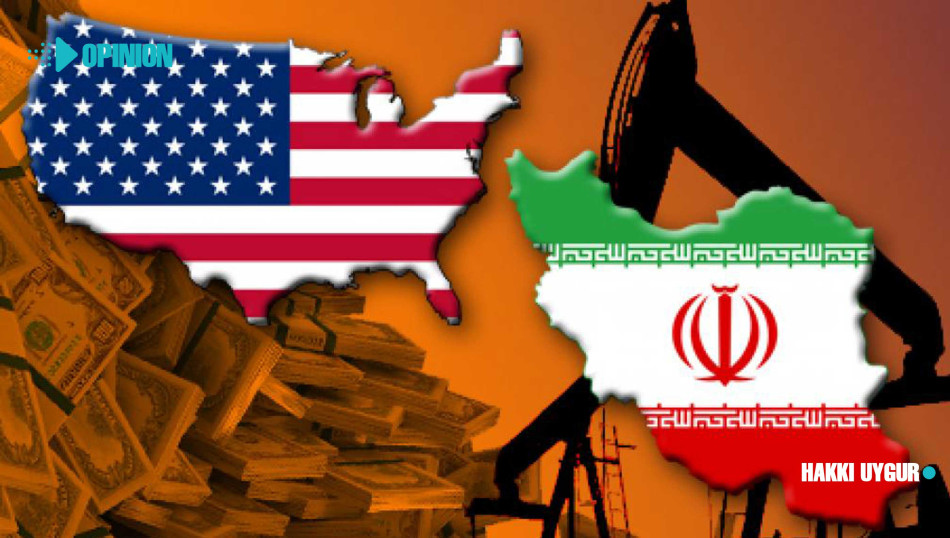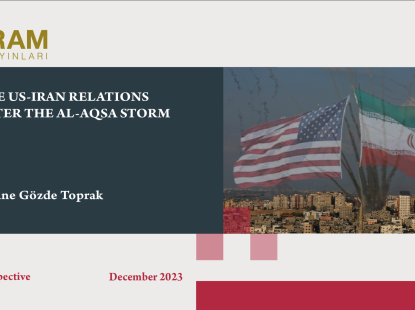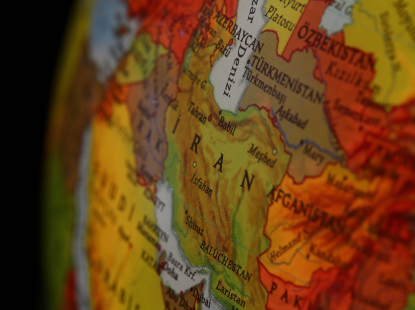The Regional Implications of the New Iran Sanctions Regime
Iran’s nuclear-related issue has once again been brought to the forefront of the international community with the unilateral US withdrawal from the nuclear deal and its subsequent imposition of the two-step sanctions regime against Iran. Initially, the US President restricted his objections regarding the deal to some technical details, but the 12 far-reaching demands needed to reach a new deal that were later announced by Secretary of State Mike Pompeo unfolded a new phase in Iran-US tension. However, Iran is not Trump’s sole target. He has not only pulled out of old deals reached with some of the US’ rivals, such as China and Russia, but also changed the rules of conduct for his country’s relations with others such as Germany and Canada, with which the US has traditionally maintained good relations. Furthermore, observers assert that Trump’s personality is not the only source of “the rules of the new era”. Quite to the contrary, what is taking place as a whole refers to the US’ determination to hasten to become “a game shaper” in the global system, which is to last until the second half of the century.
Actions and Reactions
Although a significant part of Trump’s “unprecedented” sanctions came into force in early August, a longer wind-down period was allocated for the heavier ones to leave a period of adaptation for third countries. This second phase, which came into force on November 4, includes bans on Iran’s oil trade, insurance transactions and ports, as well as the country's shipping sector. Another interesting point here is the symbolic value of November 4 since it marks the 40th anniversary of the 1979 Hostage Crisis, which terminated the diplomatic relations between the US and Iran.
Even though the sanctions on oil sales came into force in November, South Korea, Japan and France have already stopped purchasing Iran’s oil since September while Turkey and India, two countries opposing Trump’s unilateral sanctions in principle, have significantly reduced their imports. As the severe sanctions take effect it is plain that Iran’s oil exports, which were 2.5 million barrels per day in May, will fall to below 1 million barrels. Consequently, over a period of a few months, the Iranian rial has lost 65% of its value against the USD with labor strikes and other labor actions already becoming commonplace in the country.
In terms of resisting the severe economic sanctions policy that the Trump administration inherited from the Obama administration, and has further inflamed, Iran’s options are limited. Furthermore, although many countries support Iran politically on this matter, to the extent that some EU members are attempting to establish alternative payment methods to bypass the US threats of sanction violation penalties, it will not be easy for any such action and measure to help Iran access the global financial system.
Moreover, especially considering the announcement of US National Security Advisor John Bolton that if the November sanctions do not produce the expected outcome, unspecified measures may be employed, therefore, it is safe to suggest that the Trump administration wants to resolve the Iranian matter as quickly as possible. Thus, Iran – as the Iranian Minister of Foreign Affairs Zarif has expressed – keeps employing backdoor diplomacy channels in hopes of reaching a point of agreement with the US, despite its persistent tough public stance. On the other hand, the Rouhani government has been implementing monetary transparency laws and measures such as FATF, despite the internal opposition, to render the excuses of the US ineffective.
Iran Sanctions and Regional Developments
Moreover, the heavy economic sanctions aiming to reduce Iran’s oil exports to zero are not the only contrivance putting pressure on Iran. On September 22, an Iranian military parade held in the city of Ahvaz, which has an Arab majority and is rich in petrol reserves, was attacked and two different organizations claimed responsibility for the attack. Additionally, there were previous heavy clashes along the Iraqi border between separatist Kurdish organizations and Iranian security forces.
The fact that influential people close to the Trump administration often actively participate in meetings held by organizations such as the People’s Mujahedin of Iran shows that the containment of Iran may continue via different channels. Similarly, we must take note of the proliferation of organizations opposed to the Iranian regime founded abroad as well as international news stations being broadcast in Persian with the aim of reaching out to the Iranian public, along with the efforts to make Reza Pahlavi, the eldest son of the overthrown Mohammad Reza Shah, a more prominent public figure.
It can be seen that the US, while officially telling Iran that it has no regime change plan, intends to signal that its patience is limited and in case of Tehran’s noncompliance with a significant portion of the demands put forward, then regime change will be an option. In a speech held on October 13, the beginning of the academic year, at Tehran University, Hassan Rouhani pointed out this fact and stated that the ultimate goal of the US in Iran is regime change and it will not succeed in this goal.
Furthermore, due to the Trump administration’s policies, it would not be wrong to claim that in terms of regional policies some of the US’ regional allies have become courageous. To be more specific, since Trump’s tenure, Saudi Arabia and Israel seem to want a definitive resolution to the Iranian threat. However, just like with the NAFTA deal that he previously called “very bad” and then renewed, it also seems possible that Trump might be open to signing a new agreement that does not entirely exclude Iran from the regional equation with the intention to use it during the US elections. So, not disregarding the possibility that the KSA-Israel-UAE triangle may cause provocations with the hopes of escalating military tensions between Iran and the US, the Tehran administration, despite its high-pitched threats, refrains from making any moves that may cause unrest in the region.
This is why, despite Tehran’s threats after the Ahvaz attack, it did not pursue any action against Saudi Arabia or the UAE, and in contrast to its response to the evacuation of Aleppo in 2016, it did not object to the agreement between Turkey and Russia regarding Idlib and stated that despite not being part of the agreement, it will respect it. Similarly, in its meetings with European countries, Iran signals that it is ready to end the conflict in Yemen and use its influence on the Houthis in the event that a mechanism that will ease the pressure of sanctions and allow the continuation of international trade is put into place.
Moreover, Iran’s support for the formation of an Iraqi government with names that are more in line with the US and the West rather than names under its control such as Maliki and Amiri is another important point. All these moves indicate that Iran intends to ease regional tensions in the short term and focus on the ongoing economic crisis in the country.
Despite being a result of external pressure, Iran’s intentions to ease regional tensions and get along with its neighbors will reflect positively on Ankara-Tehran relations. Also, the reduction of disputes regarding Iraq and Syria, as well as the potential economic role Ankara might play at a time when economic sanctions weigh heavily on Tehran will lead to a relative improvement in Turkey-Iran relations. Besides, the price is rising for Turkey to maintain a cooperative relationship with Saudi Arabia, which has proved itself as an unpredictable actor, first due to its blockade against Qatar and later an even bigger scandal, the Khashoggi case, despite Turkey’s patient show of good will. This will also add to the improvement of Turkey-Iran relations even though relations have historically been constrained to a narrow trend with little change.
Negative Scenarios
Possible consequences of the imposed sanctions are not all positive scenarios for regional politics. If undisclosed talks between the US and Iran do not yield results and the hopes of a political resolution are ditched and/or European countries, in the announcement they are expected to make in the following days regarding the new financial mechanism, fail to satisfy Tehran’s expectations, tension in the region may continue to rise. In this case, as previously mentioned, the countries that constitute the regional leg of Trump’s strategy regarding Tehran may make unexpected moves to provoke Iran.
US intervention may be directly linked to tensions with Iran. For example, the military operation the US was expected to conduct against Al-Hashd Al-Sha’abi (Popular Mobilization Units – PMU) in Iraq, which had been postponed due to Iraq being in the process of forming a government, could commence. Additionally, Israel, which claims that Iran has begun to move missiles to Iraq, such as the case with Syria, could conduct direct operations against Tehran’s proxies in Iraq as it does in Syria. This situation could result in a severe and bloody period in Iraq similar to that of 2005-2007. In this case, Iran and its allies could take concrete action against US troops stationed east of the Euphrates, which is an issue Iran has been extremely vocal about.
Furthermore, the possibility that Tehran might relinquish the hope of a political resolution for reasons such as the crippling economy due to sanctions, increasing pressure from regional rivals and internal opposition provoking street protests, may cause US-Iran tensions to reach their highest level in the last 40 years, and this situation would have severe consequences for the entire region, including Turkey.
This entire article was published in the November 2018 issue of Kriter magazine.











